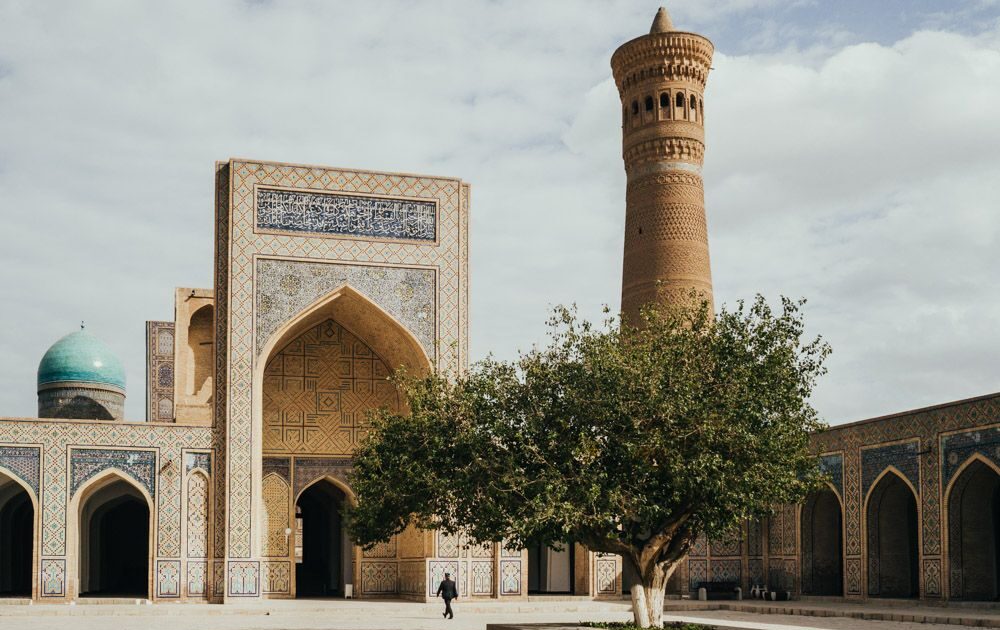In a landmark development, Caretaker Chief Minister Punjab Mohsin Naqvi embarked on a mission to bolster international ties, spearheading discussions in Uzbekistan that could reshape the cultural and economic landscape. During his productive meeting with Governor Botir Zaripov of Bukhara, an accord was reached to designate Bukhara and Multan as sister cities, fostering deeper connections between these two historically significant regions.
The gathering between Chief Minister Naqvi and Governor Zaripov was a testament to diplomacy’s transformative power. The primary agenda revolved around the proposal to forge a sister city relationship between Bukhara and Multan. This vision is poised to not only celebrate shared heritage but also to stimulate cultural exchange and promote the rich tradition of Sufism and religious culture.
Caretaker Chief Minister Naqvi highlighted the profound historical, religious, and cultural ties binding Pakistan and Uzbekistan. As the cradle of Sufism, these regions have birthed spiritual luminaries whose teachings continue to guide countless souls. By solidifying the connection between Multan and Bukhara, both nations aim to amplify the resonance of Sufism on a global scale, celebrating their shared spiritual lineage.
Beyond cultural ties, the discussions also centered on economic cooperation. Chief Minister Naqvi acknowledged Uzbekistan’s remarkable strides in revolutionizing its agricultural sector through visionary reforms. He stressed that Pakistan, particularly Punjab, could greatly benefit from Uzbekistan’s agricultural initiatives. The proposal includes the exchange of knowledge and best practices in agriculture, with a focus on cotton and wheat cultivation.
A notable aspect of this newfound partnership is the emphasis on agricultural collaboration. Chief Minister Naqvi proposed leveraging Uzbekistan’s expertise in developing improved seeds for cotton and wheat cultivation. This knowledge exchange is expected to enhance crop yields, bolstering agricultural sustainability and food security in Punjab and beyond.
Chief Minister Naqvi highlighted the importance of road connectivity between Pakistan and Uzbekistan, recognizing its potential to boost tourism and trade. A well-connected road network not only facilitates the exchange of goods but also opens doors for cultural exchange and tourism, further deepening the bonds between these nations.
The delegation’s visit to a state-of-the-art cotton factory and cotton fields in Tashkent unveiled the transformative power of modern technology in agriculture. Chief Minister Naqvi applauded the advanced machinery used in the cotton factory and expressed his support for adopting similar technologies in Pakistan. The exchange of technology and expertise in the agricultural sector is poised to drive innovation and productivity.
Cotton production received particular attention during the discussions. Chief Minister Naqvi and the delegation lauded the efforts of Uzbekistan’s agricultural experts in achieving impressive cotton yields. Recognizing the potential for similar success in Punjab, the two nations pledged to expand cooperation in cotton production and processing.
The proposal to declare Bukhara and Multan as sister cities marks a new beginning in the longstanding relationship between Pakistan and Uzbekistan. As the two regions move towards formalizing this historic partnership, the bonds of culture, spirituality, and economic progress are set to grow stronger.
The proposal to declare Bukhara and Multan as sister cities signifies a pivotal moment in the evolving relationship between Pakistan and Uzbekistan. Chief Minister Naqvi’s vision extends beyond diplomatic niceties; it seeks to weave together the rich tapestry of culture, spirituality, and economic progress. As these two regions embark on this transformative journey, the world watches with anticipation, recognizing the potential for a flourishing partnership.


